Circle R Livestock: A Family Farm
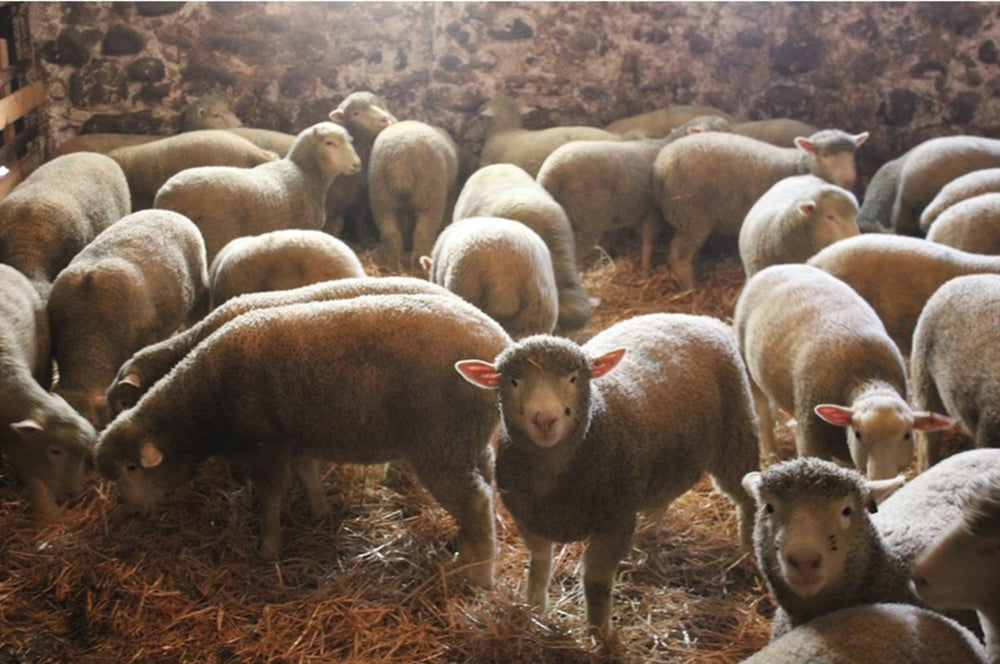
One of our big goals for Sweet Paprika this year was to source a new line of Canadian wool yarns. We started contacting farms and mills last January, researching options, connecting with farmers, and collecting samples. Eventually we settled on working with wool from Circle R Livestock, a family farm in southern Ontario. Over the spring we worked out the details to have the wool milled in New Brunswick, and we then spent the summer doing dye tests and creating colour recipes for our new Winfield (worsted) and Sutton (bulky) yarn lines.
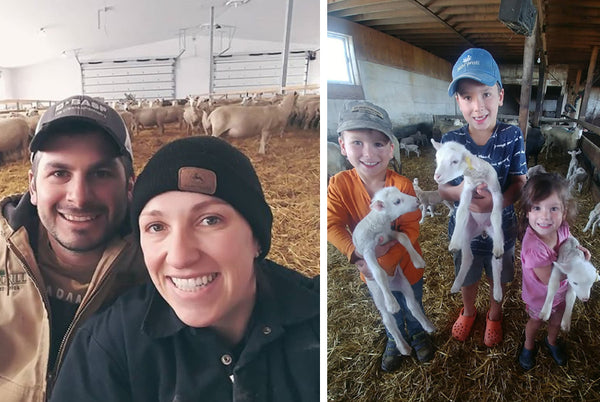
Ryan and Romy Schill and their children are the 4th and 5th generations of farmers at Circle R. Romy grew up on a dairy farm and Ryan grew up on a mixed beef, pork and chicken farm, so it's something they've always done and been involved with. They took over Ryan's grandparents farm, where they brought in sheep as a little experiment since there was extra room in the barn. After some renovations and a good look at markets (and how they could pay the mortgage and make a living off the farm full time) and what they wanted to do, more sheep came and everything else left!
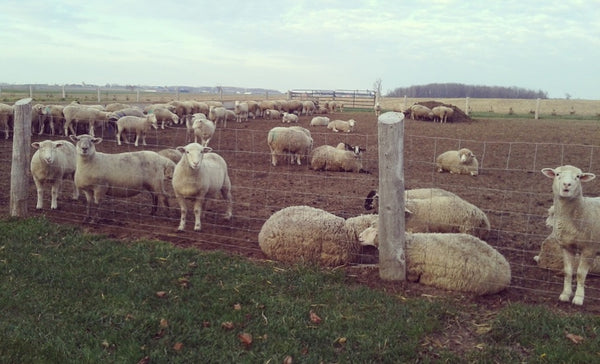
The Schills really like working with sheep and feel there is lots of market potential for both meat and wool. They now have about 800 breeding ewes and they aim to produce about 2000 meat lambs per year once they reach their full capacity. For the past 10 years one of them has been working off the farm full-time, but last year they built a new barn, a big jump that allows them both to work full time on the farm. It's really a team effort, with Romy concentrating on sheep care and management, wool and yarn, marketing and social media while Ryan takes care of the chicken flock, crops, field work and accounting.
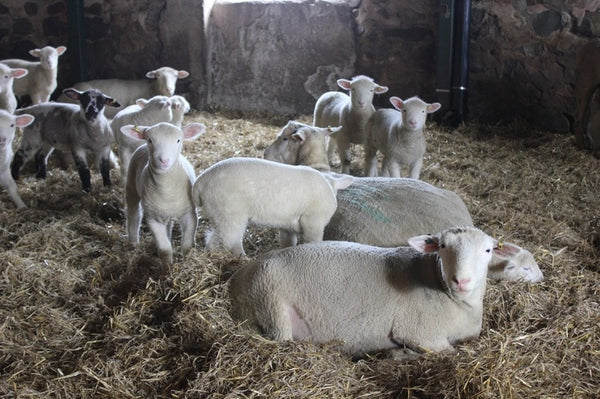
There are many reasons why we wanted to source more of our yarn from Canadian farms, including sustainability and supporting local farmers. But another big reason is that we wanted to be able to tell our customers the story behind our yarns, and allow them to understand more of the process behind our products. To help us to bring you the story of Winfield and Sutton, I asked Romy to answer a few questions about herself and Circle R.
Why did you choose to raise sheep?
Because sheep are awesome! There's a great market for meat and they are great to work with. They are also super efficient and allow for a fairly quick turn around with end product. Our sheep can breed year round, so each mama can give birth 3 times in 2 years. They are also able to birth 20-30lb lambs (average adult weight is 180lb) and raise those lambs to 40-50lb in 60 days! And of course the wool! The most amazing renewable and natural fibre source. Turning forage into wool ... so cool!
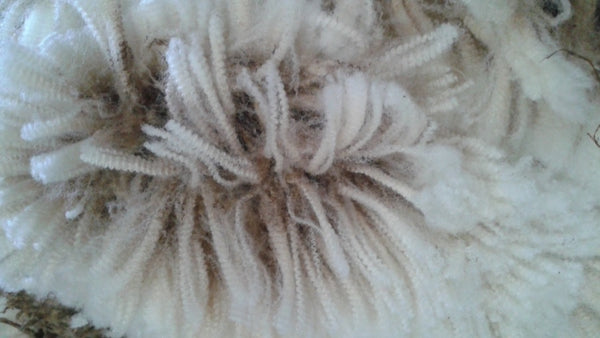
What breed of sheep do you work with?
We work with mostly a dorset-based flock. They are very maternal and take good care of their lambs. They can also have lambs year round which helps with time and lambing management, and paying the bills.
Can you describe a day in the life of one of your sheep?
Eat. Sleep. Sheep! We do feeding in the morning. Each group gets a special mixed forage ration of hay and corn silage (whole corn plant chopped and stored in silo) based on their stage of production. If it's a mama with lambs she needs at lot more nutrition than a ewe who is not feeding lambs. After feeding we might need to record and tag new lambs or move a group of sheep. Big days like shearing and sorting breeding groups are planned out and extra help (my parents) comes too.
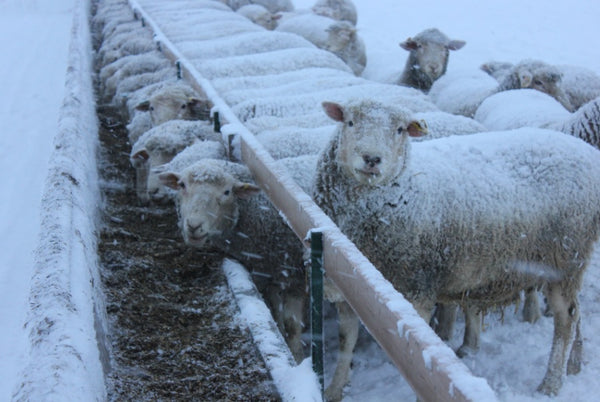
What’s your busiest time of year, and why?
It can always be busy. We do 6 lambing groups a year so it's usually a bit busy those months. Then planting and harvest adds a few busy weeks too. By having multiple lambing groups it helps spread out the work load.
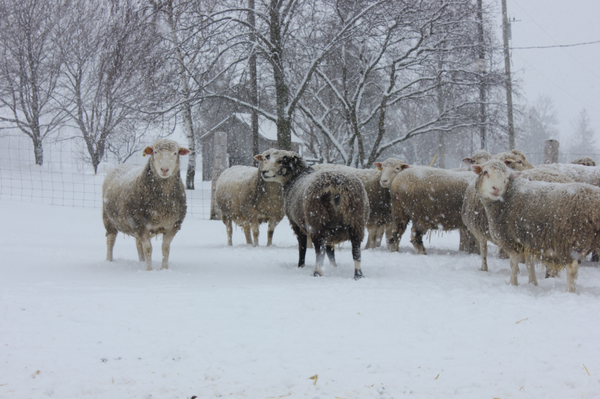
What farming techniques do you use that make your practices environmentally sustainable?
No-till or minimum till. We avoid disturbing the soil with things like plowing and deep cultivation. This helps establish a healthier soil microbiome and improves things like water retention and improves crop growth. We use some special planters to plant the seeds and we manage weeds with very targeted and limited herbicides. The helps us reduce herbicide use but still grow a healthy crop. Healthy crops are key to making good sheep food and thus good wool and lambs.
We also use technology to improve sustainability. Computer programs track the success of the sheep and help us pick the most efficient ones. Modern corn varieties and cropping tools allow us to grow more with less inputs. We do soil and feed testing so that we know exactly what is going on, and can decide how much to feed our sheep or what kind of fertilizer (and how much) to use for each specific crop and field.
Do you have a favourite place on the farm?
A quiet sheep barn with baby lambs after feeding is done.
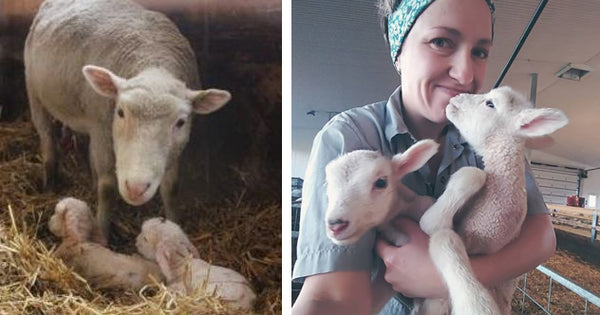
What’s one thing that you wish more people knew about where their fibre comes from?
You can get great local wool!
We definitely agree with Romy about that, and we hope you will too once you've tried out one of our new yarns sourced from her farm. If you want to continue following the story of the Circle R family (or if you just love cute lamb photos) you can find them on Instagram or their website.

Winfield (from left to right): Hinterlands, Corduroy, Propolis, and Northern Sky.
2 Responses
Helene Vallee
I love that you’re working with this farm (a.k.a. Revolution Wool Co.)! I’ve knit many items from their 3 bases and love how consistent their yarns are. I know what I’m getting when I order again a year later. They take plant dyes very well, too.
Lucie
I so enjoy learning about the provenance fo the yarn I knit. This family is obviously loving their farm work and so are their children. I also like the passing of the farm through generations. I am looking forward to our next knitting tea.
Leave a comment
Also in News
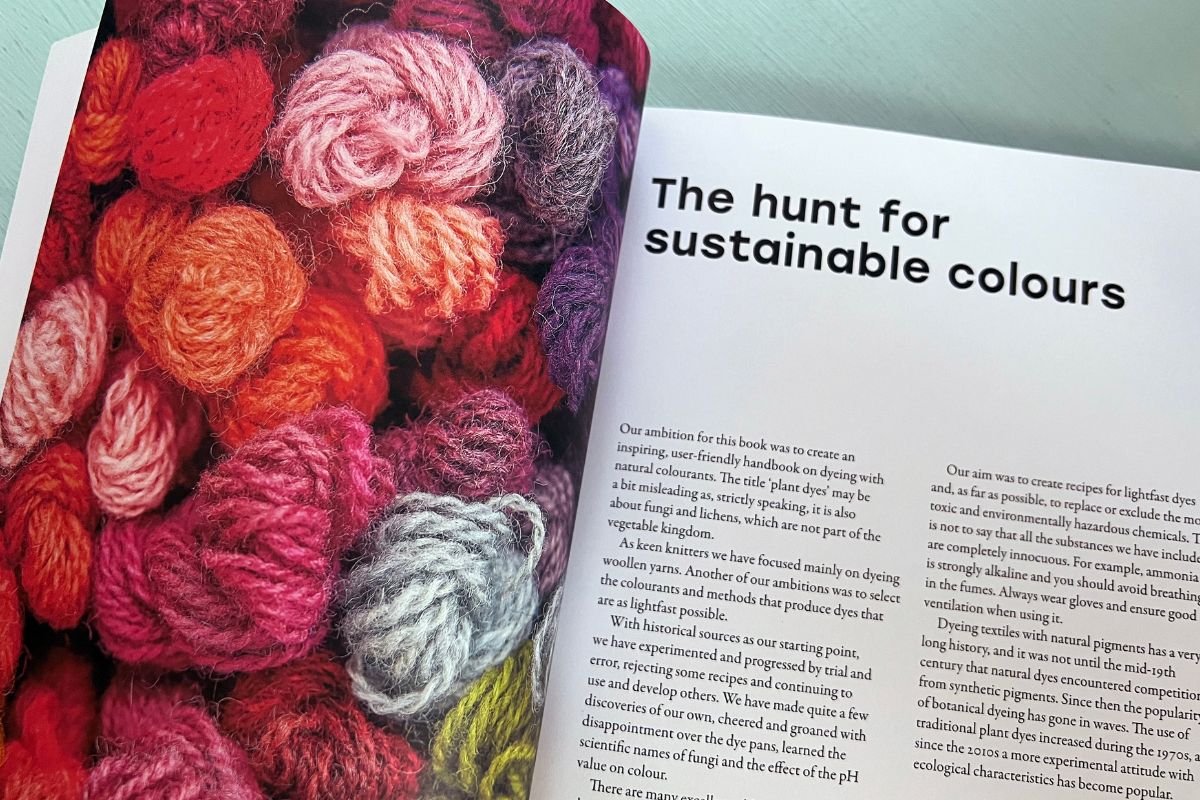
Choosing a Natural Dye Book
Have you ever tried dyeing your own yarn using natural colorants? Are you now looking for more inspiration? Or maybe you’ve always been curious, and are wondering where to begin. Below, we’ve introduced four books that could be exactly what you’re looking for!
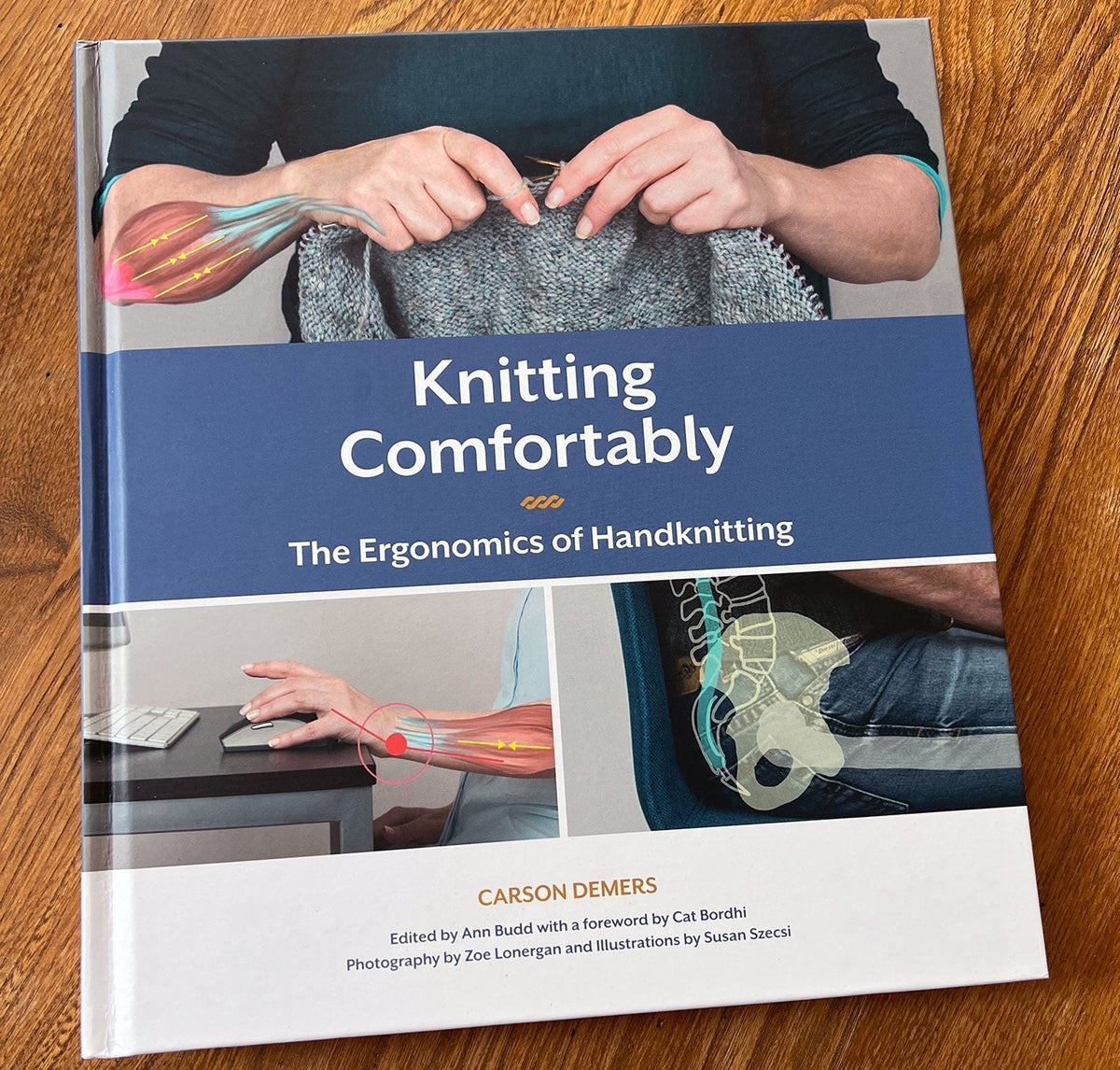
Knitting Comfortably: The Ergonomics of Handknitting
One month ago, I found myself in the emergency room with unbearable back pain. I later learned it was caused by a herniated disc and osteoarthritis (OA) that had taken over my entire lower back. Would I ever be able to dye yarn again, let alone... knit...?



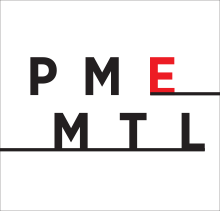
Debbie Sullivan
Author